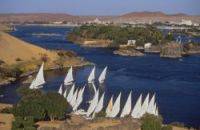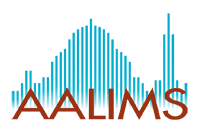Message from the President
Founded in April 2010, AALIMS reached a milestone at its third anniversary. As a sign of becoming an established organization, we have experienced our first “change of the guard.”
Political Economy of the Muslim World
Program: View PDF
Presentations: View presenters and their papers
 James A. Baker III Hall
James A. Baker III Hall
Rice University
6100 Main Street
Houston, TX 77005 (Map & Directions)
All sessions are free and open to public.
Presentations explored a variety of issues concerning political economy of the Muslim World, including economic performance, political participation, activism, identity formation, and institutional change. The conference commenced with a half-day graduate student workshop. Organized jointly by the Baker Institute of Public Policy at Rice University and the Association for Analytic Learning about Islam and Muslim Societies (AALIMS), the conference was co-sponsored by the School of Social Sciences at Rice University. The event was the fourth installment of the AALIMS conference series. The first AALIMS conference took place at Duke University in 2010, the second at Harvard University in 2011 and the third at Stanford University in 2012.
.jpg)
2013 Annual Conference Organization Committee
Lisa Blaydes (Stanford University)
Mahmoud El-Gamal (Rice University)
Murat Iyigün (University of Colorado at Boulder)
Asim Khwaja (Harvard University)
Timur Kuran (Duke University)
Melissa Marschall (Rice University)
.jpg)


Presentations
Eli Berman (University of California at San Diego)
Theology and Economic Deprivation: What’s Not Driving Revolt
Lisa Blaydes (Stanford University)
Compliance and Resistance in Iraq under Saddam Hussein: Evidence from the Files of the Ba`th Party
Hülya Canbakal (Sabanci University) and Alpay Filiztekin (Sabanci University)
Wealth and Inequality in Ottoman Lands in the Early Modern Period
Eric Chaney (Harvard University)
Religion and the Rise and Fall of Muslim Science
Fotini Christia (Massachusetts Institute of Technology) and Ruben Enikolopov (Institute for Advanced Study)
Saumitra Jha (Stanford University)
Trade Shocks and pro-Democracy Mass Movements: Evidence from India’s Independence Struggle
Timur Kuran (Duke University)
Institutional Roots of Authoritarian Rule in the Middle East: Political Legacies of the Waqf
Adria Lawrence (Yale University)
David Patel (Cornell University)
Roundabouts and Revolutions: Public Squares, Coordination, and the Diffusion of the Arab Uprisings
Jared Rubin (Chapman University)
Religious Legitimacy and Economic Success
Mohamed Saleh (Toulouse School of Economics)
Jacob Shapiro (Princeton University)
The Costs of Violence and Public Views of Militant Groups in Pakistan
Basit Zafar (Federal Reserve Bank of New York)
Credit Constraints, Subjective Expectations, and College Choice in Urban Pakistan



